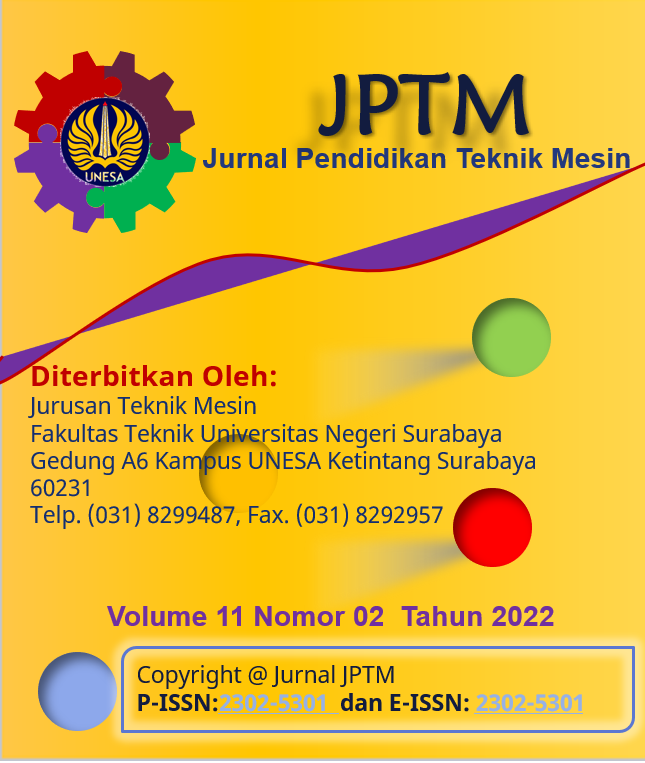PENINGKATAN KEMAMPUAN CRITICAL THINGKING DENGAN MODEL PEMBELAJARAN PROBLEM BASED LEARNING PESERTA DIDIK SEKOLAH MENENGAH KEJURUAN OTOMOTIF
Keywords:
problem based learning, kemampuan berpikir kritis, peserta didik SMK OtomotifAbstract
Abstract
The purpose of this research is to describe the enhancement of critical thinking skills through the learning model Problem Based Learning (PBL) for students of Automotive Vocational High School. This research model uses a literature review method with secondary data sources, where the secondary data sources are collected through scientific articles, books, websites, and other sources relevant to the topic of PBL and the critical thinking skills of Automotive Vocational High School students, then the data is collected, analyzed, made results and discussed to draw conclusions. From the results of the literature review, conclusions can be drawn which include: (1) the application of Problem Based Learning (PBL) model learning has the potential to provide good benefits in terms of experience, motivation, innovation and improvement of skills 0 century 021 students of Automotive Vocational Schools; (2) with the application of PBL learning model proved significant in improving students' critical thinking skills as evidenced by the effect size value data of 1.07 in the large category, because the vocational education criteria are dominated by practical learning rather than theory, this can also familiarize participants learn to find and solve a problem0 that exists in aspects of everyday life to be able to compete in 21st century abilities; (3) by raising problems in real life, the PBL model becomes an ideal choice to train critical thinking skills in Automotive Vocational High School students.
Key Words: problem based learning, critical thinking skills, Automotive Vocational High School students
Downloads
Downloads
Published
Issue
Section
 Abstract views: 202
,
Abstract views: 202
, PDF Downloads: 258
PDF Downloads: 258





